Market Recipe Blog: Fall Fair 1st Place Pie (Apple Rose Tart with Pistachio Frangipane)
We look forward to our annual Fall Fair pie contest all summer long to taste the medley of flavours our community bakes up for the occasion! Folks enter their time- and taste-tested pies to be judged (kindly!) and sampled, and we get to reap the rewards of their careful work. This year’s winner, baked by Avril, is an Apple Rose Tart with Pistachio Frangipane carefully arranged with a mesmerizing spiral of thinly sliced apples. Delight your dinner guests with this recipe, and put your own twist on it!
Fall Fair 1st Place Pie (Apple Rose Tart with Pistachio Frangipane)
Recipe
-
Pâte Sucrée Crust
- 1/2 cup butter at room temperature
- 1/3 cup caster sugar
- 1 & 1/4 cup flour
- 1 egg yolk
-
Pistachio Frangipane
- 3/4 cup butter at room temperature
- 3/4 cup caster sugar
- 3/4 cup shelled, unsalted pistachios
- 1 egg
-
Apple Topping
- 5 apples of different varieties, thinly sliced (Granny Smith, Red Delicious and Pink Lady are good ones to use)
- Honey
Instructions
- Preheat oven to 375˚ Cream together sugar and butter. Combine flour into the sugar and butter mixture (it will look very dry). Add in the egg yolk and mix together until combined. Form dough into a ball and flatten it out into a disc; wrap in plastic wrap and let chill in fridge for ~15 minutes.
- Grease an 8” tart pan with removable bottom
- Remove dough from fridge and begin evenly pressing dough into the tart pan Once dough has been formed in the pan (should be about 1/4” thick) bake for 15 minutes until light golden brown. Once tart has been removed from the oven; allow to cool before spreading on the frangipane.
- While it bakes, begin making the frangipane: In a food processor, grind the pistachios into a fine powder. Cream together the butter and sugar and then add in the egg. Fold in the pistachios until combined.
- Evenly spread the pistachio frangipane onto the cooled pie tart and begin working your apple slices into a rose formation by starting from the outside rim inwards, overlapping the apples.
- Place tart back into the oven for 45 minutes.
- Remove tart from oven and allow to cool slightly before drizzling with honey.
- Admire your work, slice and enjoy!
Pick up produce at any of our three weekly markets: Tuesdays 4-6:30PM at the UBC Farm, Wednesdays 11:00AM-2:00PM at the UBC Bookstore, and Saturdays 10AM-2PM at UBC Farm. Learn more about our produce and browse other recipes in our Market Recipe Blog. Recieve regular market recipes from our newsletter here.
Organic Week, September 18-24!
By sandland on September 19, 2023
Organic Week, September 18-24!
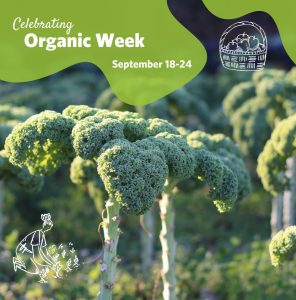
This week, September 18-24th is Canada’s National Organic Week, which is the largest annual celebration of organic food, farming and products across the country. Hundreds of individual events showcase the benefits of organic agriculture and its positive impact on the environment. Read more about it and various events at Organic Week Canada.
“It’s really important that we develop more sustainable ways to grow food. Our food system is in crisis right now. We need to be able to establish methodologies that support farmers, support the environment and continue to provide food for generations to come. Organic is a promising practice and one that we need more research and development in. We need to be able to help farmers develop strategies that make organic into the production system that we know it can be.”
– Sean Smukler, Director of the CSFS at UBC Farm
UBC Farmers’ Market: A One of-a-kind Treasure
By sandland on September 19, 2023
UBC Farmers’ Market: A One of-a-kind Treasure
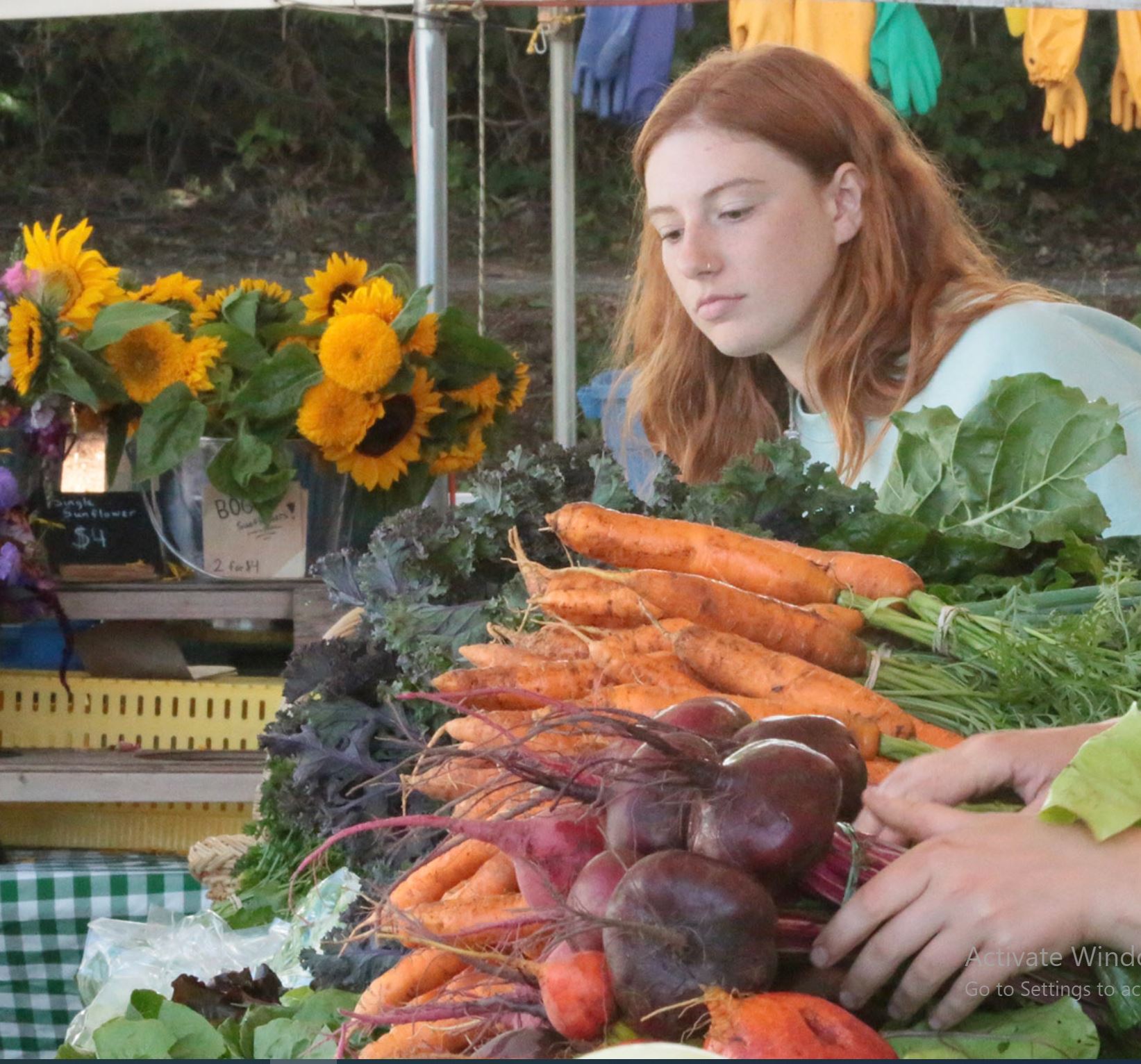
The certified organic, farm-fresh produce from the UBC Farm. (Photo: Vivian Su)
September 4, 2023
Down at the UBC Farm on Saturdays through June to November, buskers come to the market from all over to perform from 10 a.m.–2 p.m. On a recent Saturday, Barb Fraser and Dennis Henderson—who make up the Fraser-Henderson acoustic, electric folk-pop duo—were playing. Barb and Dennis said one of their favourite things to see at the market is the families visiting and shopping with young children and dogs running around having fun. There’s also, they said, the kindness and generosity of the vendors.
Pierce Pimiskern, the farm’s sales manager, said he wants community members to know that this is the only multi-vendor farmer’s market in Vancouver on a working farm.
Read the full article at The Campus Resident
The underappreciated benefits of wild bees
By sandland on September 18, 2023
The underappreciated benefits of wild bees

Image of bee on purple flower. Photo credit: Ron Whitaker / Unsplash via Free Think
September 14, 2023
More than 80 percent of flowering plants depend on insect pollinators to reproduce. When pollinators visit flowers — which act as the plants’ reproductive organs — to eat their nutritious pollen and nectar, the insects inadvertently transport the pollen between plants, which fertilizes the blooms, leading to fruit and seed formation.
But all of the benefits provided by native bees may be at risk, says Claire Kremen, a conservation biologist at the University of British Columbia. In an assessment of nearly half of all bumblebee species, scientists estimated that a third of those studied were in decline.
Read the full article at Free Think
‘Needle in a haystack’: Experts say finding daycare E. coli outbreak source complex
By sandland on September 18, 2023
‘Needle in a haystack’: Experts say finding daycare E. coli outbreak source complex.

Image of E. coli bacteria.
September 13, 2023
As of Tuesday, there have been 264 lab-confirmed cases of the bacterial infection since the outbreak at 11 Calgary daycares was declared Sept. 4. Twenty-five patients were in hospital, with 22 having hemolytic uremic syndrome, a complication affecting the blood and kidneys. Six patients were on dialysis at Alberta Children’s Hospital.
Siyun Wang, associate professor of food safety engineering at the University of British Columbia, said E. coli outbreak investigations are like criminal investigations— it involves interviewing people, gathering evidence and waiting for lab test results.
Read the full article at CTV News, Toronto Star, Canadian Press via Globe and Mail (Subscription), Yahoo, CP24, Hamilton Spectator, St. Catherine’s Standard, Peterborough Examiner, Vancouver is Awesome, , Times Colonist, and Burnaby Now
Canadians want urgent climate action, but cost of living stands in the way: poll
By sandland on September 6, 2023
Canadians want urgent climate action, but cost of living stands in the way: poll

Image of people paddleboarding in a smoky area, with wildfire burning in the background. Image credit to video in Global News article.
September 1, 2023
Dr. Kai Chan (Institute for Resources, Environment and Sustainability; Institute for Oceans and Fisheries) commented on a poll about climate change action.
Dr. Chan said attitudes about climate change have only become more entrenched over time as people find “in-crowds” who support their beliefs. “Those dynamics can be really strong and they can really prevent even personal experience from connecting to facts, to connecting to arguments,” he said.
Read the full article at Global News
BC farmers are at the mercy of climate change, and things look grim
By sandland on September 6, 2023
BC farmers are at the mercy of climate change, and things look grim
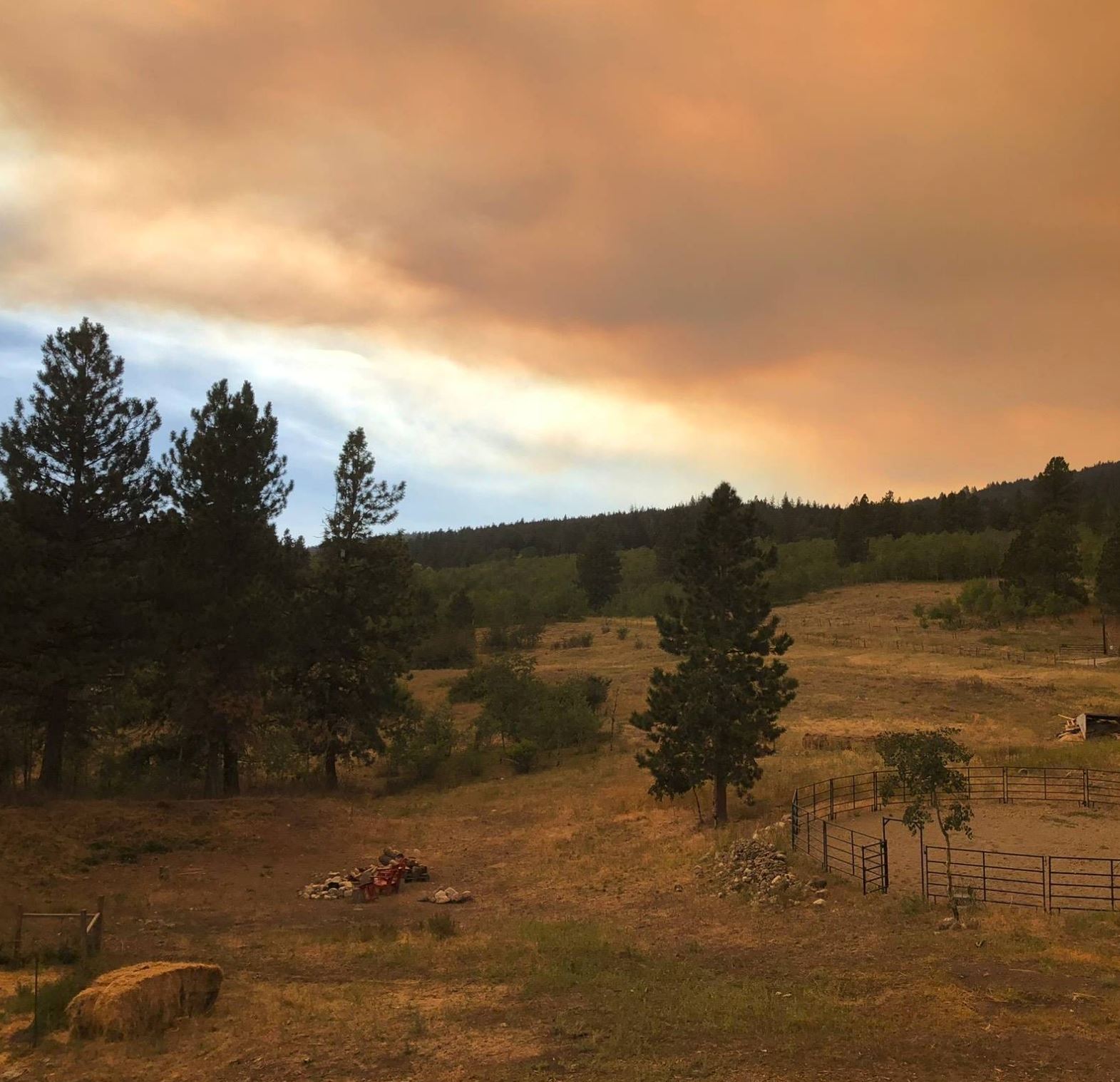
Dry farmland in BC. Credit: Julia Smith
August 25, 2023
Land and food systems professor Dr. Sean Smukler said no one grasps the fact that if we don’t deal with climate change now, the next generation can’t deal with it.
“We are facing a climate emergency and we’re pretending like it’s something that’s for the next generation to deal with,” said Smukler.
Read the full article at Rabble, and listen to the podcast version here
Trash pandas: Volunteer your backyard for a UBC raccoon study
By sandland on August 17, 2023
Trash pandas: Volunteer your backyard for a UBC raccoon study
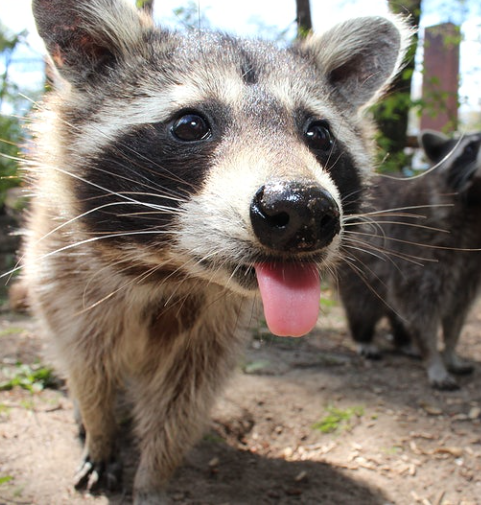
Raccoon sticking its tongue out
August 14, 2023
Professor Dr. Sarah Benson-Amram (forestry; science) and graduate student Hannah Griebling (forestry) are looking to learn more about how raccoons’ brains work.
“We are very interested in trying to understand how raccoons are able to live in cities alongside people, and we think that cognition, or their intelligence, may be one of the main reasons why they’re so successful,” said Benson-Amram.
If you are interested in volunteering your yard, email urban.wildlife [at] ubc.ca
Read the full article at CBC News, CBC Early Edition, Global News Morning, CKNW Jill Bennett Show, Postmedia via Vancouver Sun, The Province, and Canadian Geographic
CTV News via iHeart Radio; Global News via CFOX, Rock 101, Magic 106.1
Successfully managing forests must include stewarding the hidden life belowground
By sandland on August 8, 2023
Successfully managing forests must include stewarding the hidden life belowground

Retention forestry in a Douglas-fir forest on Vancouver Island, in which 40 mature living trees were retained per hectare. (Government of British Columbia),
August 7, 2023
Forestry professors Drs. Cindy Prescott and Sue Grayston say forest-harvesting practices that retain living trees throughout the harvested area sustain belowground life.
“Half of the biodiversity in forests is unseen because it lives belowground.”
Read the full article at The Conversation, Yahoo, and Winnipeg Free Press
Children in food-insecure homes visit doctors, ER more than peers, study says
By sandland on August 1, 2023
Children in food-insecure homes visit doctors, ER more than peers, study says
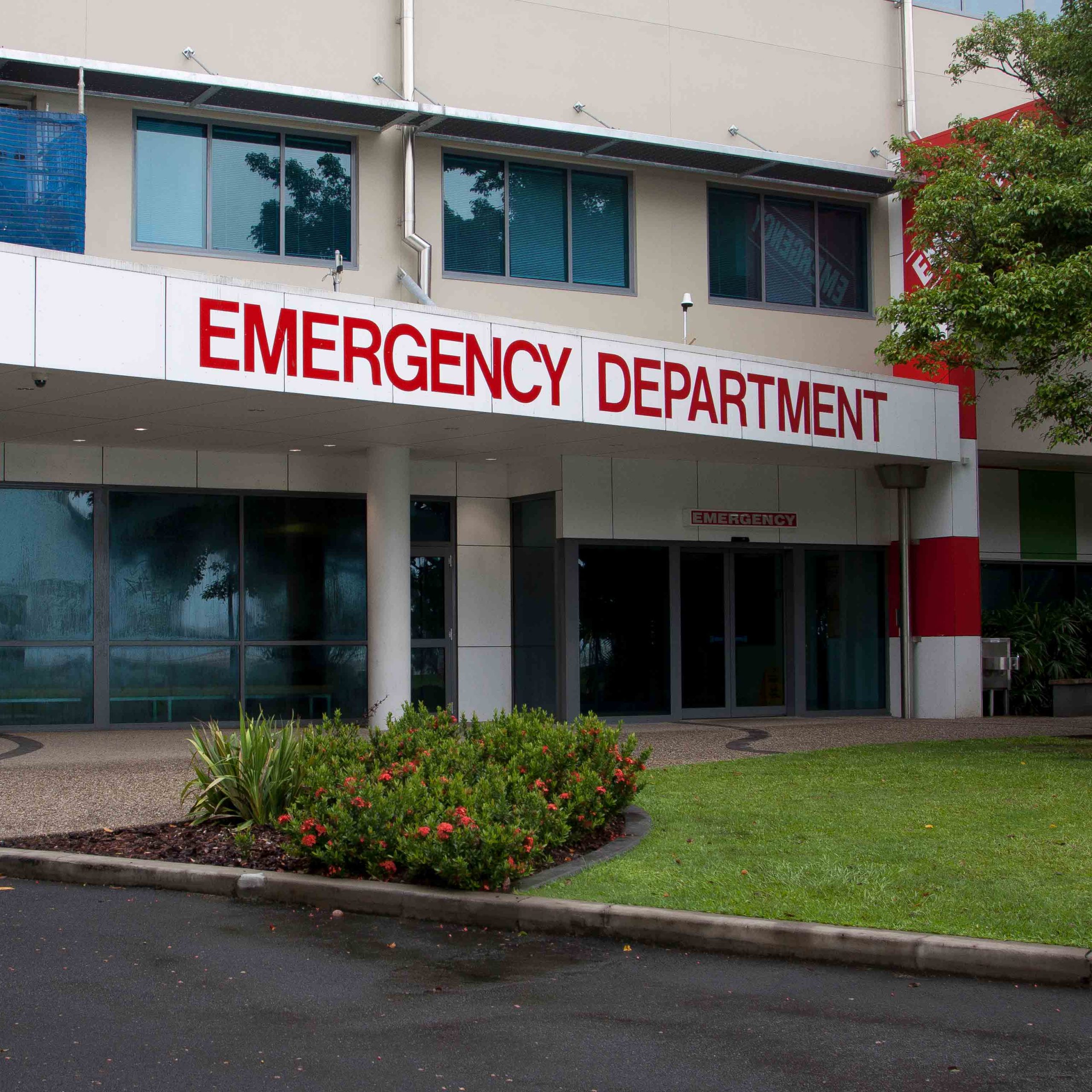
Emergency Room Sign
July 24, 2023
Jennifer Black commented on a study that found children without a reliable food source make more visits to doctors and emergency departments.
“The toll food insecurity takes on families is clear,” Dr. Black said.